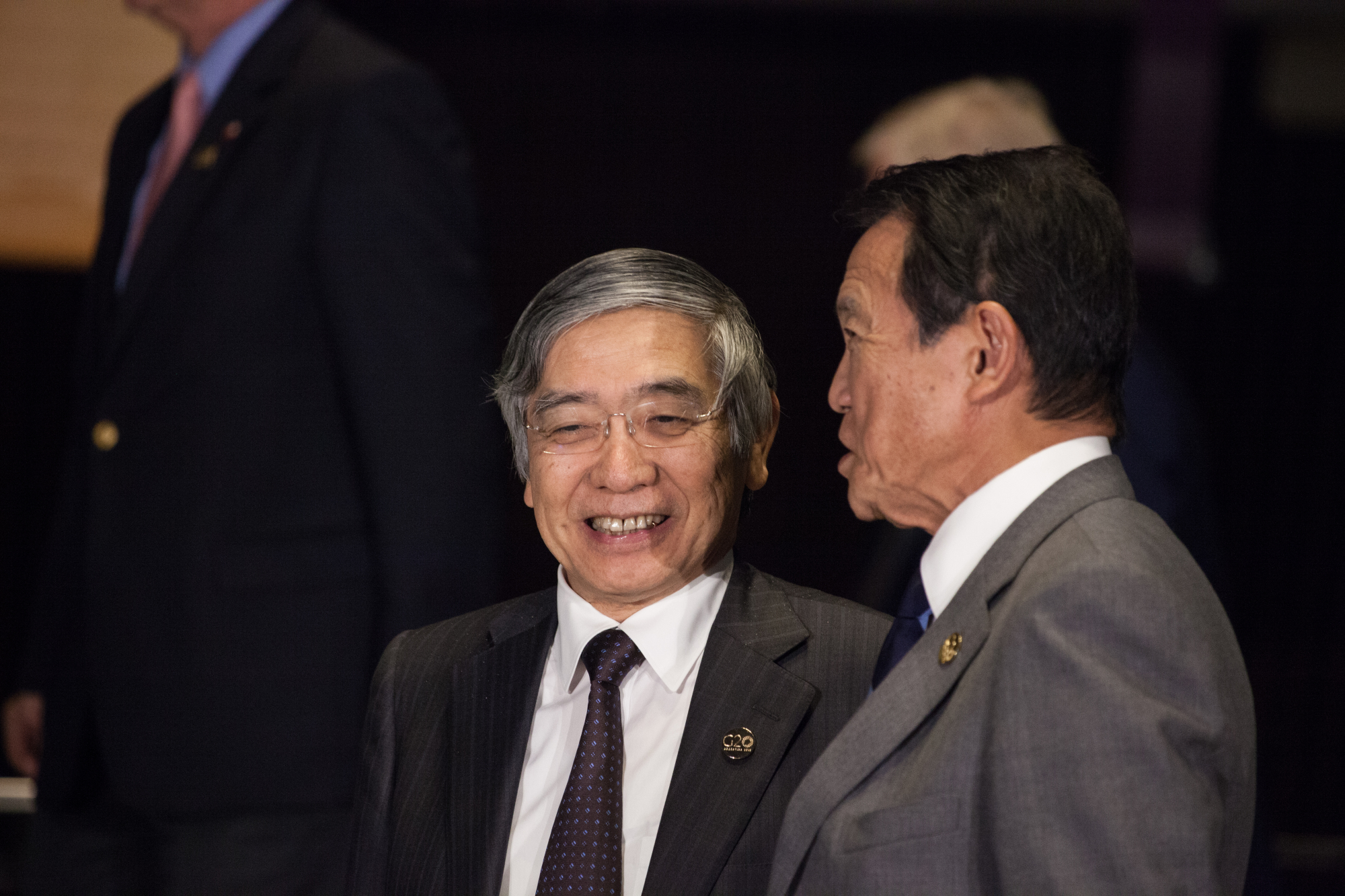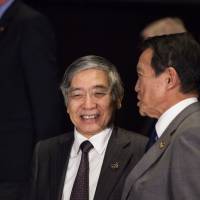Bank of Japan Gov. Haruhiko Kuroda stuck to the bank's playbook on Saturday, declining to comment on reports that policymakers are considering measures to soften the side effects of their aggressive and unorthodox monetary easing campaign.
Remarks on the issue wouldn't be appropriate, given the proximity of the bank's monetary policy meeting, Kuroda said, adding that any policy decision will require sufficient discussion about prices and the state of the economy.
"I know absolutely nothing about the basis for those reports," Kuroda said in Buenos Aires, where he is attending the meeting of finance ministers and central bank governors of the world's leading 20 economies.
According to the reports, the BOJ is considering policy tweaks to make its monetary easing campaign sustainable in the long run. Changes could include a more flexible approach to its bond-buying to control the yield curve and its purchases of exchange-traded funds.
Japan's latest data on the consumer price index, which showed a deceleration in the "core-core" CPI, which excludes the volatile prices of energy and fresh food, underscored the challenge the BOJ faces in stoking 2 percent inflation. The BOJ will release new forecasts at the end of its meeting from July 30 to 31. Lower inflation estimates would again raise questions about the effectiveness of its easing campaign and the cumulative impact of those measures on commercial banks' profits, as well as the stock and bond markets.
The BOJ faces a communication challenge should it take action to stem such side effects, since a reduction in asset purchases or a raising of target rates could be viewed by some market participants as tightening moves.


















With your current subscription plan you can comment on stories. However, before writing your first comment, please create a display name in the Profile section of your subscriber account page.